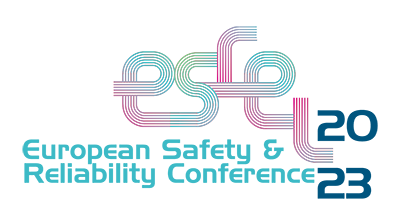During ESREL 2023, the Organising Committee will collaborate with other organisations to provide a number of joint sessions, details of which will be listed below. Please note that separate registration may be required to attend these meetings.
Energy Transition to Net-Zero Workshop on Reliability, Risk, and Resilience
Dr. Tarannom Parhizkar, University of California, Los Angeles (UCLA), US; tparhizkar@g.ucla.edu.
Prof. Mario P. Brito, University of Southampton, UK; m.p.brito@soton.ac.uk
Motivation: We must not let the risks of energy transition to zero-carbon turn into an excuse to slow down the journey to clean energy. There is an urgent need to understand the risk of an energy system that is transitioning to zero-carbon. The current fossil fuel-based infrastructures are not ready for the new energy carriers such as hydrogen, and infrastructure risks should be studied from different aspects. Introducing new energy technologies to the current energy infrastructure can increase the system vulnerability and will result in new potential risks to the system.
The risk of climate change on energy systems under transition is also an important aspect that is often neglected. Prior research on long-term energy scenarios generally has considered the effects of average climate changes on energy demand and generation. But heat waves, heavy storms, wildfires, and other climate-related extremes can substantially affect electricity/gas supply and demand, disrupt operations, and damage infrastructure. Long-term energy system planning and modeling needs to further incorporate the risk of climate variability on energy systems.
Objectives: This workshop will provide a platform for risk, reliability, safety researchers and industry professionals to present and discuss the latest developments in modelling and analysis of energy transition risks. The focus will be on how these models and analysis can be used to inform decision making to manage the risk of failure of new energy solutions meeting the energy demand and thus comprising the energy transition to zero-carbon. We envisage that this workshop will have the following sessions:
- New Energy Carriers
- Renewable and New Technologies
- Climate Change Effects
- Extreme Weather Conditions
The abstracts and full papers accepted for this workshop will be included in the workshop proceedings.
Information for Abstract submission
Authors are invited to submit their abstract (no more than 500 words, including references) using the predefined webform available on the EasyChair accessible using the link below. A peer review of the abstract will be performed. Only authors with an accepted abstract (or full paper) will be allowed to present at the ESREL2023 conference. Please note that the abstract will be made available on the conference website it will NOT be indexed. Authors with accepted abstract will be invited to submit an extended abstract and a full paper. The full paper will be indexed.
To submit your abstract please:
- Go to Easychair Management System: https://easychair.org/conferences/?conf=esrel2023
- Click on “Make a new submission”
- In the new submission add the keywords: “energy”, “transition”, “workshop”.
- Add the author information and your abstract
- Click on Submit
IWASS 2023 Panel Session: Safety Cases and Autonomous Systems
Description
This special session will be organized in a panel format for discussing autonomous systems safety, risk, and security (SRS). The session will discuss the results of the third International Workshop on Autonomous Systems Safety (IWASS) and the early findings of the 4th IWASS, organized together with ESREL. Key experts will be invited to discuss autonomous systems SRS from an interdisciplinary and cross-industrial perspective.
The panel is expected to present the results from IWASS discussions and make them more accessible to a broader audience. Participants may present additional thoughts on the discussions and workshop outcomes.
Motivation
IWASS is organized by the Department of Marine Technology at the Norwegian University of Science and Technology (NTNU), the B. John Garrick Institute for the Risk Sciences at the University of California, Los Angeles (UCLA), and the Institute of Industrial Automation and Software Engineering at the University of Stuttgart.
Autonomous systems on land, in the air, and on the sea are being widely applied. The safety issues concerning these systems are the focus of many research projects and publications, yet each industry and academic field attempts to solve arising safety issues on its own. Given the identifiable similarities, could common solutions be envisioned and developed? Answering these and related questions motivates this panel as an opportunity for an interdisciplinary discussion on risks, challenges, and foremost potential solutions concerning safe autonomous systems and operations.
Objective
The key topic of the IWASS this year is “Safety Cases and Autonomous Systems”. The panel session aims to use the results of the Third IWASS, early findings of the 4th IWASS, and participants expertise to discuss autonomous systems SRS, identifying key challenges, and possible solutions.
More about the IWASS workshop: https://www.risksciences.ucla.edu/iwass-2023-home
Organizers
Thieme, Christoph A., christoph.thieme@ntnu.no, SINTEF
Ramos, Marilia, marilia.ramos@ucla.edu, University of California Los Angeles
Utne, Ingrid B., ingrid.b.utne@ntnu.no, Norwegian University of Science and Technology
Mosleh, Ali, mosleh@ucla.edu, University of California Los Angeles
Morozov, Andrey, andrey.morozov@ias.uni-stuttgart.de, University of Stuttgart
The validation of the special sessions will be done under the responsibility of the technical and scientific committee. Organizers are invited to provide a list of reviewers that may be supplemented by TC members to ensure consistency in the evaluation process.
